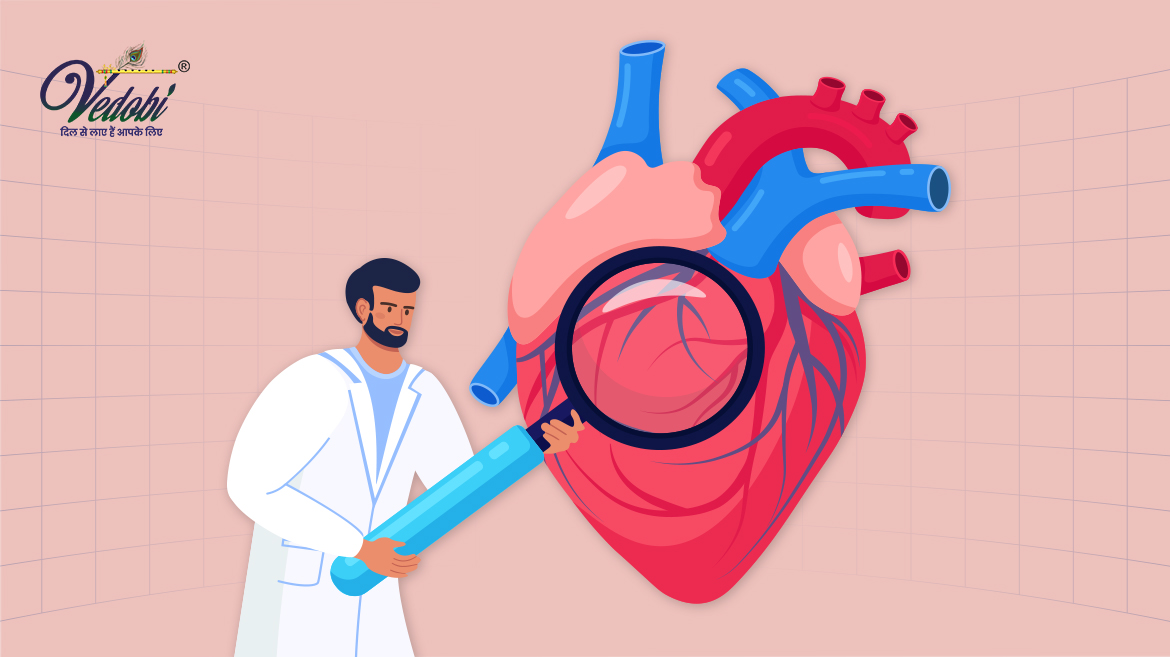Myocarditis: Symptoms, Causes, Diagnosis, and Treatment
2025-03-19 00:00:00
Myocarditis is an inflammation of the heart tissue, which is myocardium (the middle layer of the heart wall). Myocarditis affects the heart's electrical system and muscle cells, leading to abnormal heart rhythms and problems with the heart's pumping function. In severe cases, the heart becomes too weak to pump enough blood to the body, which can cause a stroke or heart attack.
Although this disease is rare, the condition can affect people quickly over time. In some cases, no symptoms are visible while others have severe symptoms. The degree of the condition differs, and those with severity can even cause death.
Types of Myocarditis
There are several types of myocarditis. These are mentioned below:
Acute myocarditis
Acute myocarditis is caused by a viral infection and is marked by sudden onset. These symptoms generally don't last long and can resolve quickly.
Chronic myocarditis
Chronic myocarditis occurs when treatment for the disease takes longer than usual or when symptoms relapse after treatment. This can occur due to autoimmune activity, in which the immune system attacks healthy cells and tissues of the body.
Lymphocytic myocarditis
Lymphocytic myocarditis is a rare form of myocarditis that needs intense medical care. This occurs when white blood cells (lymphocytes) attack and cause inflammation of the heart muscle.
Symptoms of Myocarditis
In the early stages of myocarditis, a person may have few or no symptoms. Common symptoms can include
- Chest pain.
- Fatigue.
- Fast or abnormal heart rhythm (arrhythmia).
- Diarrhea.
- Headache
- Fever.
- Muscle ache.
- Sore throat
- Shortness of breath.
- Leg swelling.
Causes of Myocarditis
Myocarditis can be caused by infections, drugs and chemicals, or a condition that causes inflammation throughout the body. Possible causes of myocarditis are
Viruses:
Many viruses are associated with myocarditis, including those that can cause the common cold (adenovirus), COVID-19, hepatitis B and C, parvovirus, and the herpes simplex virus.
Gastrointestinal infections (echovirus), mononucleosis (Epstein-Barr virus), and rubella can also cause myocarditis. Myocarditis can also be caused by HIV, a virus that causes AIDS.
Bacteria:
Bacteria that can cause myocarditis include streptococcus, staphylococcus, and bacteria that cause Lyme and diphtheria disease.
Parasite:
These include trypanosoma cruzi and toxoplasma. Some parasites are carried by insects and can cause a disease called Chagas disease.
Fungi:
Fungal infections can cause myocarditis, especially in people with weakened immune systems. Those associated with myocarditis include fungal infections such as candida, aspergillus, and histoplasma (commonly found in bird droppings).
Some medications or illegal drugs:
These include drugs used to treat cancer, like antibiotics such as penicillins and sulfonamides, some anti-seizure medications, and cocaine.
Chemicals or radiation:
Exposure to carbon monoxide and radiation can sometimes cause inflammation of the heart muscle.
Other inflammatory diseases:
Conditions that can cause myocarditis include lupus, giant cell arteritis, Wegener's granulomatosis, and Takayasu's arteritis.
Prevention for Myocarditis
Avoid close contact with sick people:
Stay away from people with flu symptoms or other respiratory diseases until they recover. If you have symptoms of a viral infection, try not to come in contact with other people.
Wash your hands regularly:
Frequent hand washing is one of the best ways to avoid getting sick and spreading disease.
Avoid risky methods:
To reduce the risk of HIV-related myocardial infection, you should practice safe sex and not use illegal drugs.
Get vaccinated:
Stay up to date on recommended vaccines, including those that protect against COVID-19, influenza, and rubella—diseases that can cause myocarditis.
Diagnosis of Myocarditis
Your doctor will take a detailed medical history and review your symptoms. To confirm the diagnosis, you may have some or all of the following tests:
- Electrocardiogram (ECG).
- Chest X-ray.
- Magnetic resonance imaging (MRI).
- Blood test.
- Echocardiogram.
- Cardiac catheterization.
Once a detailed diagnosis is made, your doctor will determine the best treatment option for you.
Treatment for Myocarditis
Myocarditis cannot be cured. However, doctors can treat the underlying cause of the myocarditis if identified and may prescribe the following medications based on heart symptoms, type of myocarditis, and severity. Treatment includes
Angiotensin-converting enzyme (ACE) inhibitors/angiotensin receptor blockers (ARBs):
These are specified in lowering blood pressure and help in remodeling of the heart muscle after myocarditis.
Beta blockers:
It corrects arrhythmias and helps in remodeling of the heart muscle.
Diuretics:
It helps in reducing fluid retention, which can occur when the heart muscle weakens.
Corticosteroid:
It reduces inflammation in the body and prevents the causes of myocarditis.
In severe cases, when an abnormal heart rhythm occurs, your doctor may implant a pacemaker or an implantable cardioverter defibrillator (ICD). If heart function does not improve and continues to cause severe heart failure, you may be considered for a heart transplant.
Home Remedies for Myocarditis
Green Tea
Green tea contains catechins and is commonly used to prevent heart diseases, improve heart functioning, and relieve myocarditis.
Ginkgo biloba
Ginkgo biloba, also known as the maidenhair tree, is one of the oldest plants in the world. It has been used for its healing properties, especially in the treatment of myocarditis. It is used to regulate the functioning of the heart.
Motherwort
Motherwort is one of the most commonly used herbs in medical practice today to treat myocarditis. People use it as a heart remedy and for congestive heart failure.
Astragalus root
Astragalus root has been used in traditional medicine for centuries due to the presence of antioxidants. It is used to cure heart problems and is often used to treat myocarditis.
L-carnitine
L-carnitine reduces the chances of heart failure and myocarditis. L-carnitine supplements can be taken in powder or capsule form.
When to see a doctor?
Call your doctor immediately if you have symptoms of myocarditis like unexplained chest pain, a faster heart rate, or shortness of breath.

